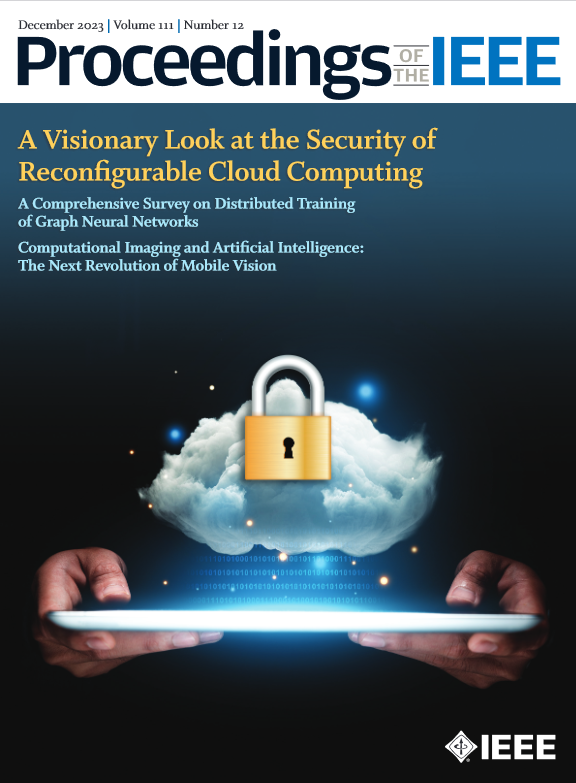面向 6G 的 RIS 辅助无小区大规模 MIMO 系统:基础、系统设计与应用
IF 23.2
1区 计算机科学
Q1 ENGINEERING, ELECTRICAL & ELECTRONIC
引用次数: 0
摘要
人和物智能互联的引入对第六代(6G)网络提出了更高的要求和更多的挑战,如高频谱效率和能效(EE)、超低延迟和超高可靠性。无小区(CF)大规模多输入多输出(mMIMO)和可重构智能表面(RIS)(也称为智能反射表面(IRS))是应对这些前所未有的需求的两项前景广阔的技术。鉴于这两种技术各具特色,如何将它们整合在一起以进一步提高无线网络性能已受到研究和开发人员的高度关注。在本文中,我们对 RIS 辅助 CF mMIMO 无线通信系统的研究进行了全面考察。我们首先介绍了系统模型,重点是系统架构和应用场景、信道模型和通信协议。随后,我们总结了系统运行和资源分配方面的相关研究,并进行了深入分析和讨论。随后,我们介绍了 RIS 辅助 CF mMIMO 系统面临的实际挑战,特别是 RIS 带来的挑战,如硬件损伤(HI)和电磁干扰(EMI)。我们总结了相应的分析和解决方案,以进一步促进 RIS 辅助 CF mMIMO 系统的实施。此外,我们还探讨了 RIS 辅助 CF mMIMO 与其他新兴 6G 技术之间的相互作用,如毫米波 (mmWave) 和太赫兹 (THz)、同步无线信息和功率传输 (SWIPT)、下一代多址接入 (NGMA) 和无人机 (UAV)。最后,我们概述了未来 RIS 辅助 CF mMIMO 系统的几个研究方向。本文章由计算机程序翻译,如有差异,请以英文原文为准。
RIS-Aided Cell-Free Massive MIMO Systems for 6G: Fundamentals, System Design, and Applications
An introduction of intelligent interconnectivity for people and things has posed higher demands and more challenges for sixth-generation (6G) networks, such as high spectral efficiency and energy efficiency (EE), ultralow latency, and ultrahigh reliability. Cell-free (CF) massive multiple-input-multiple-output (mMIMO) and reconfigurable intelligent surface (RIS), also called intelligent reflecting surface (IRS), are two promising technologies for coping with these unprecedented demands. Given their distinct capabilities, integrating the two technologies to further enhance wireless network performances has received great research and development attention. In this article, we provide a comprehensive survey of research on RIS-aided CF mMIMO wireless communication systems. We first introduce system models focusing on system architecture and application scenarios, channel models, and communication protocols. Subsequently, we summarize the relevant studies on system operation and resource allocation, providing in-depth analyses and discussions. Following this, we present practical challenges faced by RIS-aided CF mMIMO systems, particularly those introduced by RIS, such as hardware impairments (HIs) and electromagnetic interference (EMI). We summarize the corresponding analyses and solutions to further facilitate the implementation of RIS-aided CF mMIMO systems. Furthermore, we explore an interplay between RIS-aided CF mMIMO and other emerging 6G technologies, such as millimeter wave (mmWave) and terahertz (THz), simultaneous wireless information and power transfer (SWIPT), next-generation multiple access (NGMA), and unmanned aerial vehicle (UAV). Finally, we outline several research directions for future RIS-aided CF mMIMO systems.
求助全文
通过发布文献求助,成功后即可免费获取论文全文。
去求助
来源期刊

Proceedings of the IEEE
工程技术-工程:电子与电气
CiteScore
46.40
自引率
1.00%
发文量
160
审稿时长
3-8 weeks
期刊介绍:
Proceedings of the IEEE is the leading journal to provide in-depth review, survey, and tutorial coverage of the technical developments in electronics, electrical and computer engineering, and computer science. Consistently ranked as one of the top journals by Impact Factor, Article Influence Score and more, the journal serves as a trusted resource for engineers around the world.
 求助内容:
求助内容: 应助结果提醒方式:
应助结果提醒方式:


